One life, lots of living
Kari Urquhart's kindness, compassion and energy touched the lives of family, friends and people she'd never met in her 36-year battle with kidney disease
Advertisement
Read this article for free:
or
Already have an account? Log in here »
To continue reading, please subscribe:
Monthly Digital Subscription
$0 for the first 4 weeks*
- Enjoy unlimited reading on winnipegfreepress.com
- Read the E-Edition, our digital replica newspaper
- Access News Break, our award-winning app
- Play interactive puzzles
*No charge for 4 weeks then price increases to the regular rate of $19.00 plus GST every four weeks. Offer available to new and qualified returning subscribers only. Cancel any time.
Monthly Digital Subscription
$4.75/week*
- Enjoy unlimited reading on winnipegfreepress.com
- Read the E-Edition, our digital replica newspaper
- Access News Break, our award-winning app
- Play interactive puzzles
*Billed as $19 plus GST every four weeks. Cancel any time.
To continue reading, please subscribe:
Add Free Press access to your Brandon Sun subscription for only an additional
$1 for the first 4 weeks*
*Your next subscription payment will increase by $1.00 and you will be charged $16.99 plus GST for four weeks. After four weeks, your payment will increase to $23.99 plus GST every four weeks.
Read unlimited articles for free today:
or
Already have an account? Log in here »
Hey there, time traveller!
This article was published 14/12/2019 (2188 days ago), so information in it may no longer be current.
If there was a day that mattered, then somehow Kari Urquhart always remembered: a birthday, an anniversary, a milestone that held meaning to someone around her. Whatever it was, Kari always marked it the same way: with a thoughtful gift or handwritten note, decorated with her signature string of Xs and Os.
Of all those special days, few were more precious to her than April 16. It was a date that bound her life to that of her sister, Shauna Timlick, and so every year Kari would send a message to mark the occasion. There, in her ebullient handwriting, she would thank her sister for the gift that had transformed her life: a kidney.
“I’d say, ‘I don’t need a gift, watching you live your life is a gift,’” Shauna says. “But she couldn’t let any occasion go by without it being celebrated.”
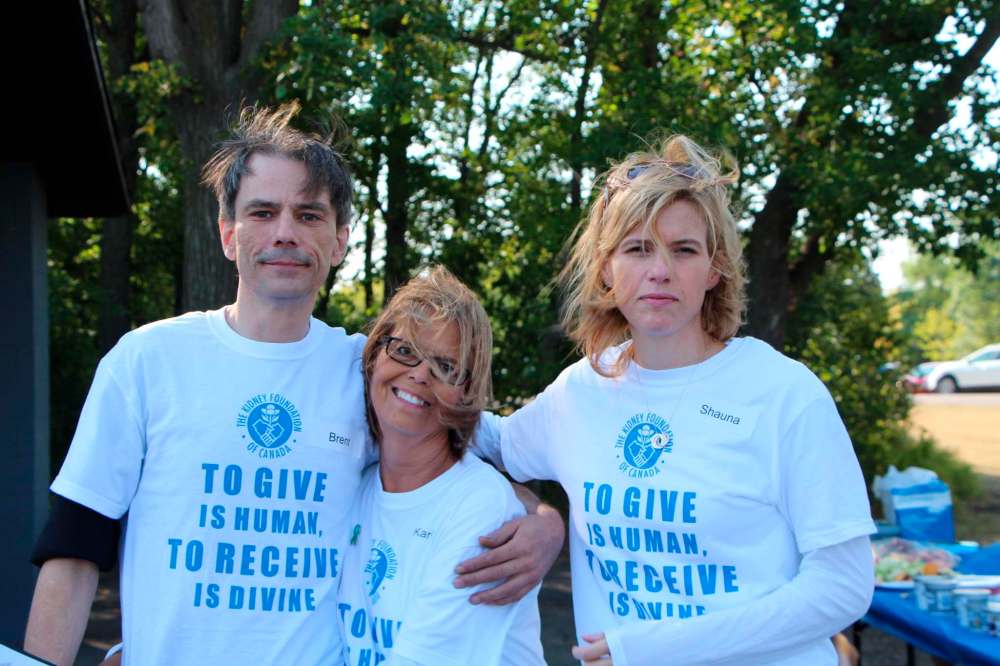
That organ was Kari’s third transplant, and the longest-serving. It was with her while she soared in her investment career, when she fell in love with the man who became her husband, while she poured her boundless energy into making the community better. It was with her while she travelled the world, following music and adventure.
So when she died on July 16, just five days short of her 53rd birthday, she left behind a legacy made possible in part by organ donation — and also, above all, by her own spirit, undimmed by a 36-year-long journey with kidney disease.
“I hope that people will appreciate how important organ donation is,” Shauna says. “I see the life that my sister lived because of it. She just touched so many people’s lives. The world needed her.”
From the start, Kari seemed destined to make waves. As a child, parents Terry and Marg O’Reilly say, she was bright and relentlessly energetic. She played sports and showed interest in caring for others; when she became an older sister to Brent and Shauna, she’d curl up many nights to read her favourite Dr. Seuss books to them.
But when Kari was 16 years old, she began to feel sick. The tests came back with a diagnosis of polycystic kidney disease, a rare finding in someone so young; it usually shows symptoms in adults over 40. But in Kari’s case, the disease progressed fast; by age 20, she had already had her first kidney transplant, from her mother.
After suffering organ rejection, she received a second transplant, this one from a donor in Alberta. It lasted six years, until an unrelated medical incident forced her to take medication that jeopardized the kidney. When that one also failed, she was forced back onto physically draining dialysis treatment.
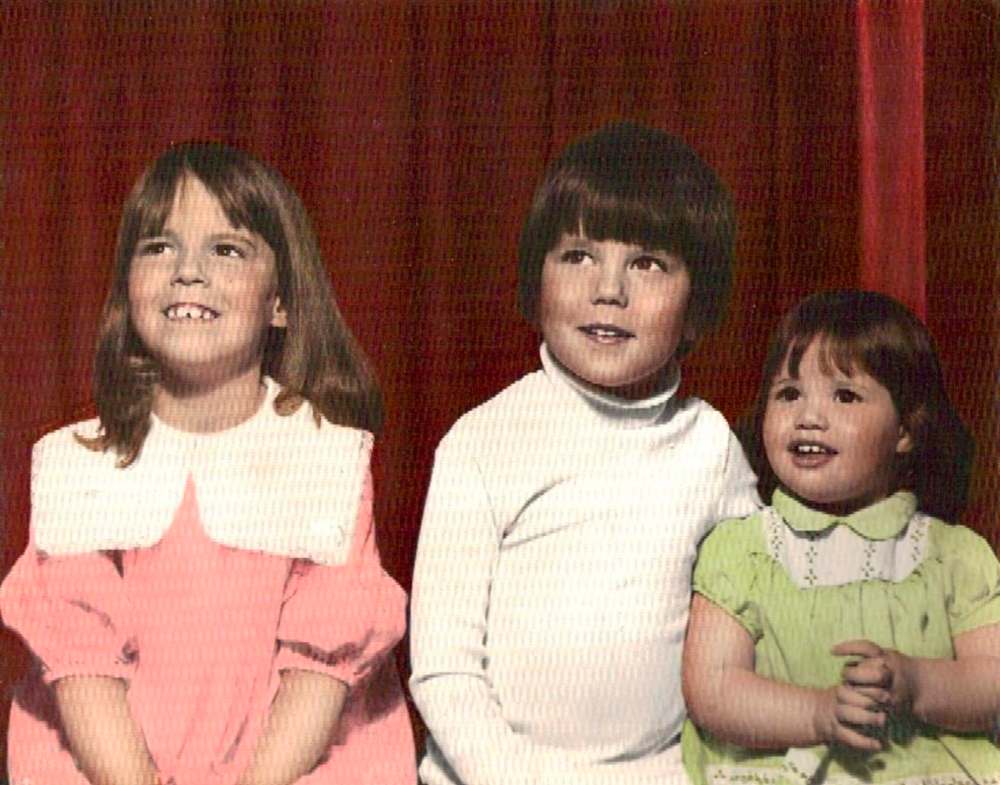
There was some good news, though. By then, she had another donor. Her sister Shauna, six years Kari’s junior, had been tested for compatibility as soon as she was able to do so, and it turned out they were a close match. On April 16, 1998, the sisters went into surgery together.
That gift would give Kari a new lease on life, and it left an indelible mark on her sister’s life, too. Today, Shauna remembers lying next to her sister in hospital, the two giggling late into the night, making up funny stories about the footsteps they heard in the halls outside.
“Ultimately I do feel like that transplant saved my life,” Shauna says. “I started getting healthier and started feeling better… just because of that flick of the brain where you realize I need to embrace life a little bit differently. Seeing what she was going through made me realize I need to eat healthier and take care of my body.”
After that transplant, Kari felt better than she ever had. So she began to make the most of it, seizing each moment. She became an investment adviser at Nesbitt Burns, which turned out to be a good fit for her talent: she had a knack for connecting with people and clients.
Kari could meet people in an elevator, Shauna says with a laugh, and know their life story by the end of the ride.
In the summer of 2000, while out with friends, she met a tall, gregarious man. For Kari, it was love at first sight, she later told friends, though it would be several months before they managed to connect for an actual date. Once they did, something clicked right away. They shared a love of music and travel, and could laugh for hours together.
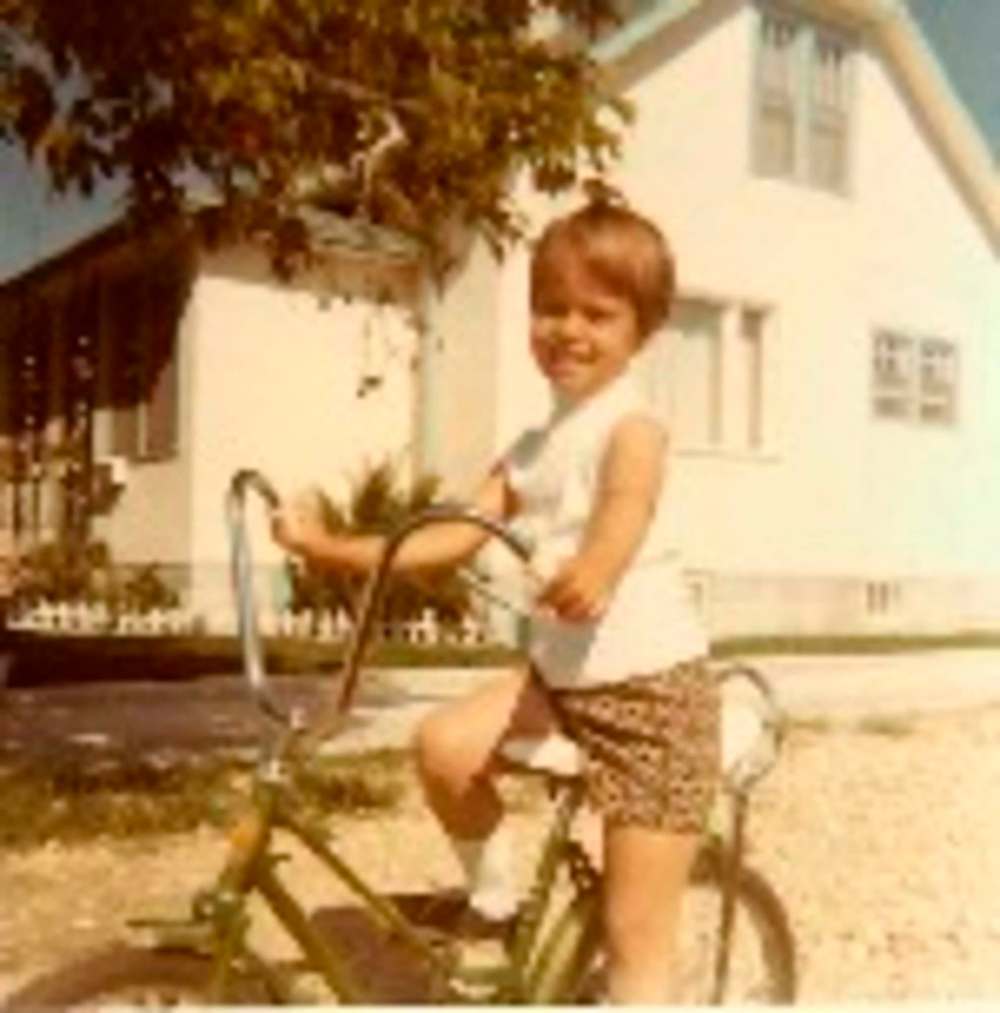
For the next 19 years, Kari and David Urquhart would be constant companions. From the start, she told David that her life expectancy was no longer than her mid-50s, but that didn’t dampen their adventures. Together, they jaunted around the world to see concerts; when they married in 2010, Kari said it was the happiest day of her life.
Kari had always cared for others and, with David’s support, she began to pour her energy into community work. After befriending a street-involved person in an Osborne Village bus shelter, the couple was inspired to set up the O’Reilly Urquhart Family Foundation, which supports non-profits that help at-risk people.
In 2017, they launched the You Can Do It Scholarship Fund, to provide annual $1,000 awards to encourage young students to continue in school. Both funds are managed by the Winnipeg Foundation, and Kari was proud of them.
“She helped me to be a more compassionate person,” David says. “It was just a positive way of living. She gave of herself regardless of the troubles she had with her health, and the obstacles she had. It was, ‘Just remember, there are others that are worse off than you.’ She always thought about that.”
Kari began volunteering with the Kidney Foundation of Manitoba, where she organized a team for the annual Kidney Walks. In true Kari fashion, she took to organizing the group with aplomb, arranging for special team shirts.
Over the last three years alone, her team — called To Give is Human, to Receive is Divine — raised more than $40,000.
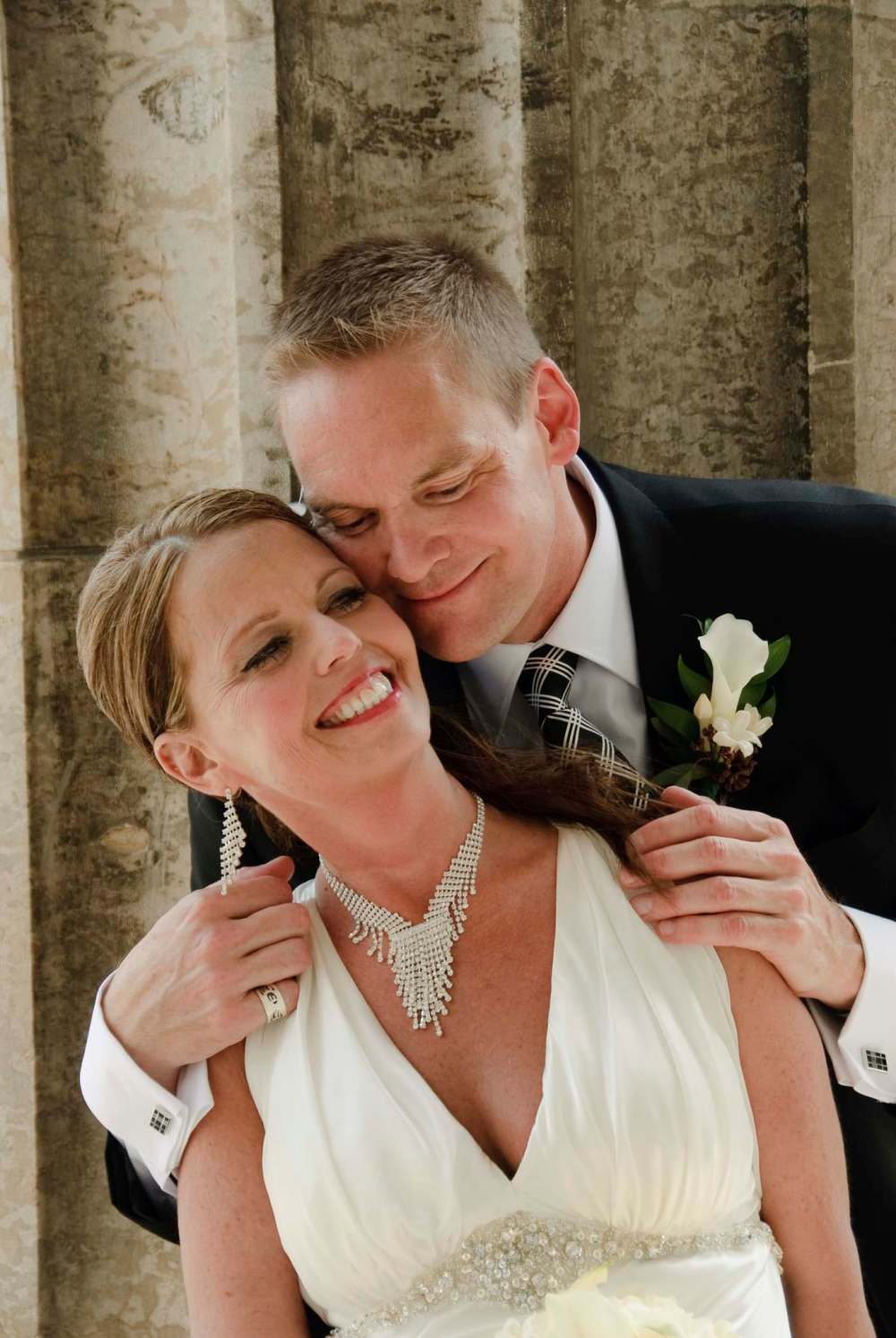
“At the Kidney Foundation, Kari was our hero,” says Val Dunphy, executive director of the organization’s Manitoba branch. “She truly made life much richer for so many others with kidney disease through her generous and positive nature. Kari was courageous and caring, and we miss her beautiful spirit.”
Yet through all of this, Kari was suffering. The kidney she’d received from her sister failed in 2015, and she went on dialysis. Though Kari kept her spirits high — she once had David draw a smiley face on her stomach, to surprise hospital doctors — she was bouncing in and out of hospital, her health steadily unravelling.
About a year before her death, Kari told her family that she wanted to enlist the services of MAID, the province’s medically assisted dying team. By early July, after a complication raised new challenges with dialysis and with a chance of palliative care looming, she knew she was ready.
When Kari made the call, the finality of it was a “shock,” her parents say, but it was also expected. She had always been so organized, and so in control of her life and how she lived it. That was how she coped with her illness, her sister and husband think: by seizing her destiny in every way that she could manage.
The night before she died, the whole family went out for dinner. They lingered for hours, sharing memories and just loving each other. Kari laughed a lot that night, her father remembers; she was in good spirits. It is time that, looking back, the whole family would cherish, one of the last gifts she would give them.
The next day, they gathered in the condo she shared with David. It was there, rested in her favourite chair, clad in a white sundress she chose for the occasion, that Kari said goodbye. She’d made a playlist of her favourite songs to play her through to the end, and had even made copies to share with her friends.
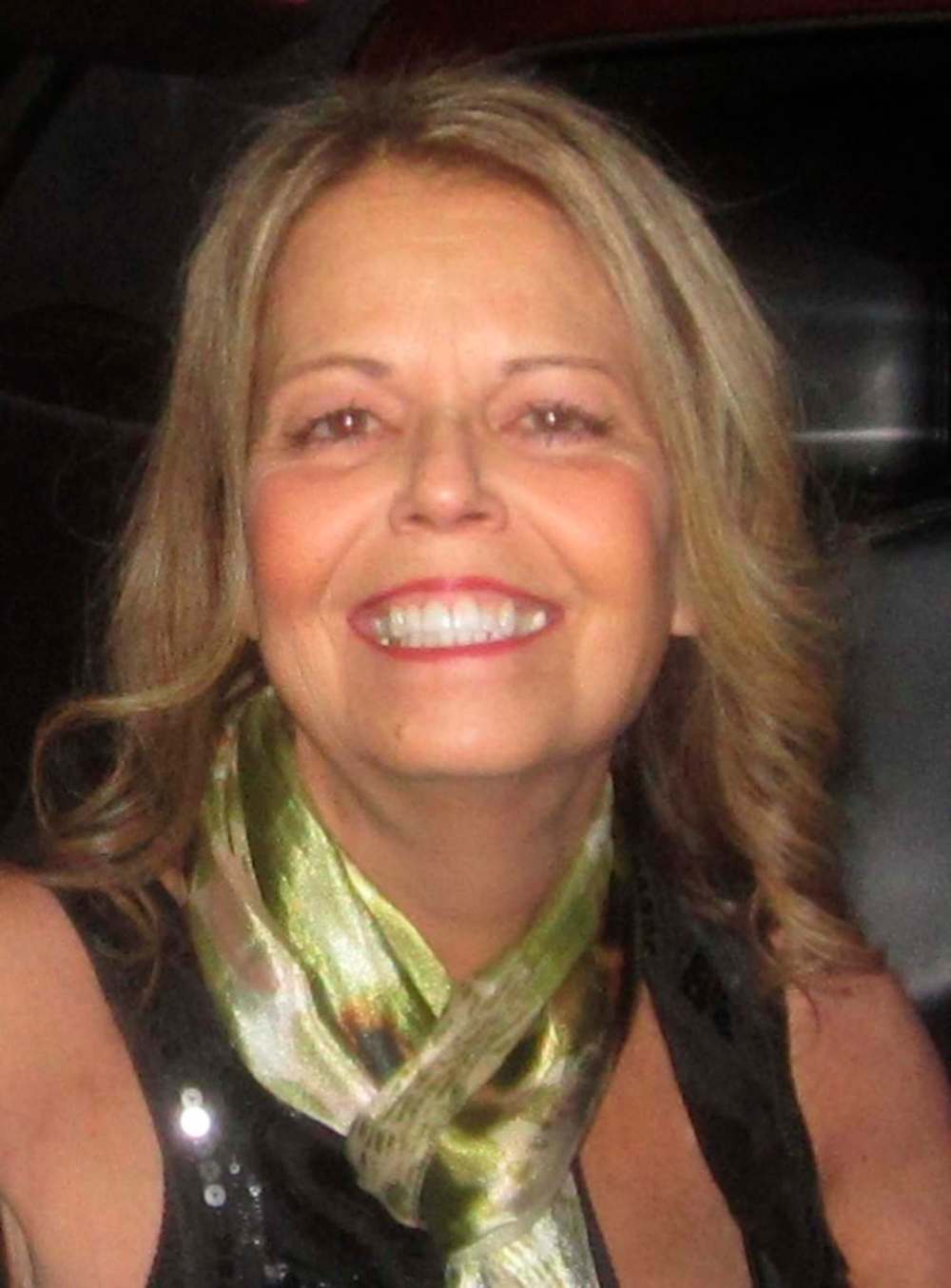
Then, surrounded by light and held in the arms of the people who loved her, Kari died.
“I can’t say enough about MAID, and the service they provided,” father Terry O’Reilly says. “It was an absolute comfort that when they were there for the procedure, they were so compassionate, and so professional and so loving.”
In true Kari fashion, she’d already planned out what would happen next. She’d chosen the venue for her celebration of life, the menu, the music. A band played on the patio, and there was a brightness to the event: it was a testament to her life, her family says now, and the unbridled joy with which she lived it.
“She just changed my outlook on life,” Shauna says. “She helped me realize that… you need to see the world, and do things, and treat people in a manner with kindness, because you don’t have every day. You don’t know how long you’ll have. Sometimes it felt like every day could be goodbye.”
That spirit remains with them. David still has her phone, which regularly lights up with reminders of birthdays and anniversaries of various people Kari loved. To a friend, she left a stack of letters, filled out with messages to mark milestones she wouldn’t be able to celebrate with her loved ones in person.
And so, nearly four months after she died, just in time for what would have been the 19th anniversary of their first date, a card arrived at the condo she and David shared. There, in Kari’s handwriting, was the latest missive from someone who never lacked words for the people who mattered to her.
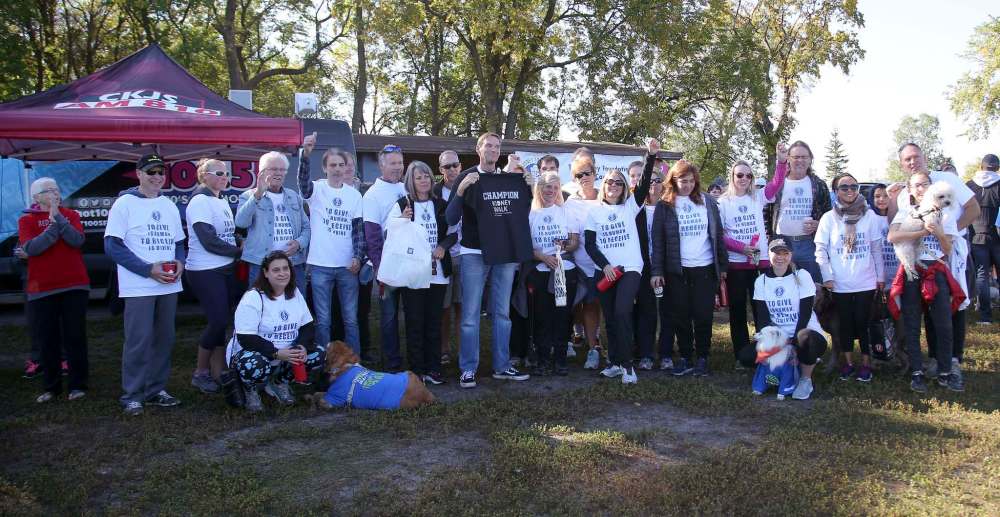
“To my darling husband,” it began.
Donations in honour of Kari Urquhart’s life can be made to the Kidney Foundation of Manitoba, the O’Reilly Urquhart Family Foundation Fund, or the O’Reilly Urquhart Family “YCDI” (You Can Do It) Scholarship Fund, the latter two via the Winnipeg Foundation.
melissa.martin@freepress.mb.ca
Our newsroom depends on a growing audience of readers to power our journalism. If you are not a paid reader, please consider becoming a subscriber.
Our newsroom depends on its audience of readers to power our journalism. Thank you for your support.


